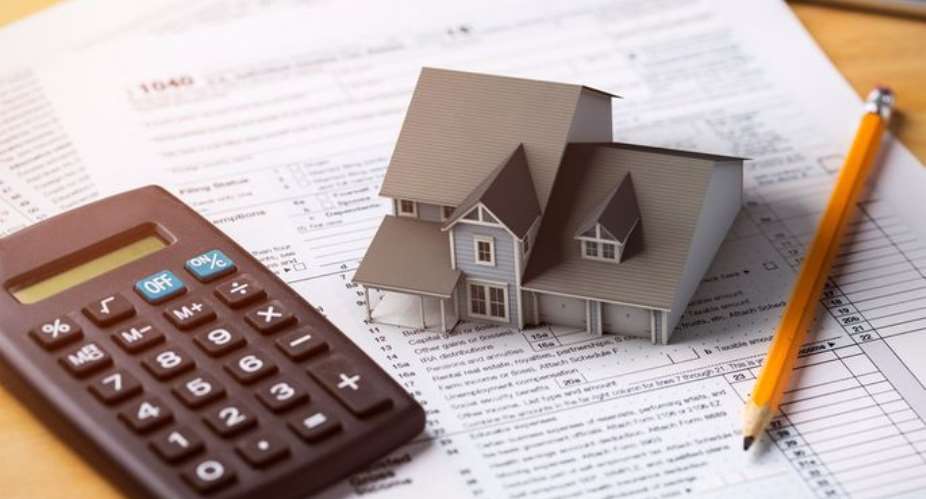Experts predict that Ghana's real estate sector is poised for remarkable growth, fueled by factors like population growth and urbanization.
According to recent projections from Statista, the market value of real estate in Ghana is anticipated to soar to an impressive US$458.50 billion in 2024, with residential real estate emerging as the dominant segment, accounting for a significant share of this growth.
The surge in demand for housing, particularly in urban areas, has fueled this remarkable trajectory. Ghana's population has been steadily increasing, and with it, the need for adequate housing options has become more pressing. Urbanization has further exacerbated this demand, as people migrate from rural to urban areas in search of better opportunities and living standards. As a result, the real estate market in Ghana is witnessing a surge in demand for affordable housing solutions.
Residential real estate is expected to spearhead this growth, with a projected market volume of US$389.10 billion in 2024. This segment encompasses various housing options, including apartments, condominiums, and single-family homes, catering to the diverse needs of the population. The emphasis on residential development underscores the urgency to address the housing deficit in the country and provide accessible housing options for all income levels.
Moreover, the projected annual growth rate (CAGR 2024- 2028) of 5.48% indicates sustained momentum in the real estate market, with expectations of reaching a market volume of US$567.60 billion by 2028. This optimistic outlook presents ample opportunities for investors, developers, and stakeholders to capitalize on the burgeoning market and contribute to its expansion.
In a global context, Ghana's real estate market may not yet rival the colossal figures seen in countries like China, where the market is estimated to reach a staggering US$135.70 trillion in 2024. However, the significance of Ghana's real estate sector cannot be understated. It serves as a vital pillar of the economy, driving employment, infrastructure development, and overall economic growth.
Despite the promising outlook, Ghana's real estate sector also faces several challenges that warrant attention. The affordability gap remains a critical issue, with a large segment of the population unable to access decent housing due to financial constraints. Additionally, inadequate infrastructure, regulatory hurdles, and land tenure issues pose significant barriers to the sector's growth and sustainability.
To fully unlock the potential of Ghana's real estate market, concerted efforts are needed from both the public and private sectors. Policymakers must implement measures to streamline regulatory processes, improve infrastructure, and enhance access to financing for developers and homebuyers alike. Collaboration between government agencies, industry stakeholders, and community organizations is essential to address the multifaceted challenges and foster a conducive environment for sustainable growth.
In conclusion, Ghana's real estate market stands at a pivotal juncture, poised for remarkable growth in 2024. The increasing demand for affordable housing, coupled with urbanization trends, presents lucrative opportunities for investment and development. However, realizing this potential requires proactive measures to address existing challenges and create an enabling environment for sustainable growth. By harnessing the collective efforts of all stakeholders, Ghana can propel its real estate sector towards greater prosperity, contributing to the overall socio-economic development of the nation.





 Don't travel to volatile regions in northern Mali — Ministry of Foreign Affair t...
Don't travel to volatile regions in northern Mali — Ministry of Foreign Affair t...
 ILO’s claim of depleting reserves false, we have funds to pay pensions — SSNIT
ILO’s claim of depleting reserves false, we have funds to pay pensions — SSNIT
 Benin police fire tear gas to break up union protest
Benin police fire tear gas to break up union protest
 Lay KPMG audit report on SML-GRA contract before Parliament – Isaac Adongo tells...
Lay KPMG audit report on SML-GRA contract before Parliament – Isaac Adongo tells...
 Supervisor remanded for stabbing businessman with broken bottle and screwdriver
Supervisor remanded for stabbing businessman with broken bottle and screwdriver
 People no longer place value in public basic schools; new uniforms, painting wil...
People no longer place value in public basic schools; new uniforms, painting wil...
 'Comedian' Paul Adom Otchere needs help – Sulemana Braimah
'Comedian' Paul Adom Otchere needs help – Sulemana Braimah
 Ejisu by-election: Only 33% of voters can be swayed by inducement — Global InfoA...
Ejisu by-election: Only 33% of voters can be swayed by inducement — Global InfoA...
 Minority will expose the beneficial owners of SML, recover funds paid to company...
Minority will expose the beneficial owners of SML, recover funds paid to company...
 Prof. Opoku-Agyemang has ‘decapitated’ the NPP’s strategies; don’t take them ser...
Prof. Opoku-Agyemang has ‘decapitated’ the NPP’s strategies; don’t take them ser...
